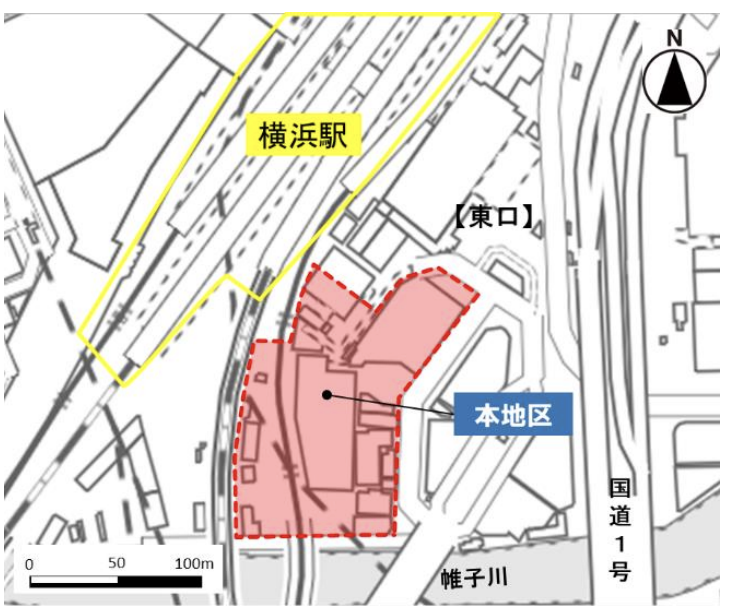Are you interested in real estate investment but feel that "it seems difficult because I am a beginner" or "I don't know where to start"? In recent years, real estate investment has been spreading not only among the wealthy but also among ordinary office workers due to concerns about future pensions. In fact, a survey conducted by the Ministry of Land, Infrastructure, Transport and Tourism in 2019 found that about 41.5% of those with real estate investment experience were company employees. In other words, real estate investment is an asset management method that an increasing number of novice office workers are taking up.
This article provides a detailed explanation of the basic structure and definition of real estate investment, the main types, advantages and disadvantages (risks), and key points for beginners to get started. Although it includes some technical content, we have tried to make it easy for beginners to understand. We hope that by acquiring the correct knowledge of real estate investment and understanding the merits and risks, we can help you take the first step toward building future assets.
What is Real Estate Investment (Definition and Overview)
Real estate investment, as the name implies, is "investment in real estate. Specifically, it is an investment technique in which one buys a condominium, apartment, single-family home, or other property and leases it to a third party to earn rental income, or sells the property in the future to earn a profit. Unlike investments in paper assets such as stocks or FX, real estate is a physical asset.
There are two main types of income from real estate investment: monthly rental income (income gain) and capital gains on the sale of properties (capital gain). While you can earn stable rental income by renting the property, you can also profit from the sale of the property in the future if the property's value has increased since the time of purchase. However, it is important to note that there is a risk that the gain from the sale of the property may turn into a loss depending on the market environment and demand for the property.
Since real estate is a physical asset, the risk of price fluctuation is relatively low and the asset value is stable. It is not easily swayed by rapid fluctuations in market prices like stocks and exchange rates, and real estate values and rents tend to rise in tandem during periods of inflation. In many cases, loans from banks and other financial institutions can be used to finance purchases, making it easy to start real estate investment even when cash reserves are insufficient. For these reasons, real estate investment is attracting attention as a means of long-term asset building, and with the right knowledge and planning, even beginners can earn a stable income.
Main Types of Real Estate Investment
There are several types of real estate investments and methods. This section introduces the typical types of real estate investment for individual investors. Each has different initial costs and risk/return characteristics, so it is important to understand the characteristics and choose the method that best suits your needs.
Compartmentalized condominium investment (studio condominium investment)
In a condominium unit investment, you purchase a single room (unit ownership) in a condominium or apartment building and rent out the room to earn rental income. For example, you can buy a studio apartment in the city center and rent it out to others. Since only one room is purchased, rather than an entire building, the initial cost can be relatively low, making this method popular among beginners as it is easy to start even with little personal funds. In particular, many studio-type condominiums are in the affordable price range and are simple to manage, so they tend to be chosen as an entry-level real estate investment.
The advantages of investing in a condominium unit are the small initial investment andrelatively little management effort. Since there is only one room, the scope of property management and tenant relations is limited, making it easy even for beginners. Another advantage is that when it comes time to sell, it is easier to find a buyer and more liquid (easier to sell) than a single building.
On the other hand, the disadvantage is that the source of income depends on a single tenant; if you own only one apartment, your rental income will be zero during the period when that tenant moves out or fails to pay rent. During that period, loan repayments, management fees, property taxes, and other expenses will continue, so there is a risk that income and expenditures will temporarily deteriorate when vacancies occur. In addition, the yield (rate of return on investment) on condominium units tends to be lower than in the case of owning the entire property because the equity in the entire land is smaller. This is due to the costs unique to condominium unit ownership, such as management fees and reserve funds for repairs, and the smaller asset value benefit of the land. In general, however, it is a low hurdle method for beginners in real estate investment due to the small amount of funds required.
Investment in a single apartment or condominium building
In the single building investment, an entire condominium or apartment building is purchased and all of the units are rented out. For example, you may purchase a wooden apartment building (X units) and become the owner, or you may purchase a reinforced concrete condominium building. Compared to condominium unit investment, the initial cost is much higher, requiring tens to hundreds of millions of yen in capital, so in many cases, a loan from a financial institution is essential at the time of purchase.
The advantage of a single building is that the scale of earnings can be large because rental income can be earned from multiple rooms. If there are tenants in all the rooms, a large amount of rental income is received every month, and thus higher profitability can be expected than with condominiums. In addition, the risk of vacancy can be spread out since there are multiple rooms. Even if one room is vacant, the other rooms will generate rental income, so it is easy to avoid a situation where there is no income at all (however, care must be taken to balance the loan repayment amount).
The disadvantages are the large initial investment and theincreased management effort. Owning a single building means that you are responsible for the maintenance and management of the entire building, and there are more things to consider, such as management of common areas and repair plans for the building as a whole. Naturally, property taxes and fire insurance fees are also charged for a single building, so maintenance costs tend to be high. In addition, it is important to note that multiple vacancies at once can significantly reduce rental income. Because of the large loan repayment amount, the impact of vacancies will have a greater impact on income and expenditures than with a condominium investment.
While single building investments offer the potential for large returns, they also require a high level of financial capability, making them suitable for those with a large amount of personal funds and those with high incomes who can easily pass the loan screening process. Because the hurdles are too high for beginners to take on suddenly, many people start by investing in condominiums to gain experience and expand their asset size, and then eventually take on the challenge of investing in a single building.
Single-family home investment (single-family home rental)
In the detached house investment, you purchase an existing detached house or a newly built house for sale, and rent out the entire house as a rental property. This is a way to become the owner of a rental house rather than an apartment. The advantage is that once a tenant moves in, you can expect a stable, long-term rental income.
In addition, depending on the property, used detached houses may be available for sale at very low prices, and if you can find a bargain property, you may be able to start at a low cost. Some properties offer higher surface yields (annual rental income divided by the purchase price) than other investment options, and some people invest in detached houses mainly in rural and suburban areas.
However, there are some caveats to investing in detached houses. First, the vacancy risk is similar to that of condominium unit investment in that it ultimately depends on a single tenant. If there is no tenant in a single house, the income will be zero, which is the same. Furthermore, detached houses tend to have a high risk of building deterioration, as many of them are wooden houses. It is not uncommon for older properties to be prone to major repairs, such as repairs to roofs and exterior walls and replacement of plumbing and drainage systems , making maintenance costs higher than expected. There have been cases of failure such as buying an inexpensive old house only to have the total cost increase due to the high cost of repairs.
It is also important to note that the market for renting detached houses is limited. In urban areas where many people prefer to live in condominiums, there is a risk that singles and the elderly will shun them, resulting in prolonged vacancy periods. Therefore, the choice of location is extremely important, and the surrounding environment (availability of schools and supermarkets, convenience of transportation, etc.) must be carefully considered when selecting a property.
These are the main types of real estate investment. In addition to these types of investments, there are also products that invest indirectly in real estate, such as real estate investment trusts (REITs) and real estate crowdfunding, which allow you to invest in the real estate market from a small amount, but differ from direct real estate ownership in that they are bought and sold through the securities market. Although this article mainly discusses real estate investment, which involves purchasing and managing physical real estate, it is important to remember that there are other ways to use these financial instruments depending on your investment stance.
Advantages of Real Estate Investment
Real estate investment offers a variety of advantages not found in other asset management strategies. Here we explain the main advantages that beginners should keep in mind.
-
Stable income from continuous rental income: The most attractive feature of rental management is the stable cash flow in the form of monthly rental income. As long as you can secure tenants, you can receive a regular income (unearned income) even if you are not working, which can supplement your pension in retirement or provide additional income to make your family budget more comfortable. Unlike stock dividends, rent is paid monthly based on a contract, making it easy to make a systematic financial plan and suitable for long-term asset building.
-
Potential for capital gains: Real estate can increase in value after purchase. Especially if the property is in a good location in an urban area or in an area where demand is increasing due to redevelopment, you may be able to sell the property for more than the purchase price in the future. If a profit is made on the sale of the property, it will be combined with the rent income once earned, resulting in a large total profit. However, since the value of real estate is affected by the economy and supply and demand, an increase in value is not always guaranteed. The only advantage is the possibility of maintaining and improving asset value over the medium to long term.
-
Inflation-resistant real assets: Real estate is considered an inflation-resistant asset. While cash deposits lose their real value when inflation rises, real estate tends to increase in rent and appraised value in tandem with rising prices, making it easier to avoid a decline in assets due to inflation. In fact, there have been cases where land prices and rent levels have risen even during past inflationary periods, and one of the advantages of real estate investment is that it can serve as an "inflation hedge" (inflation protection). In addition, real estate is a physical asset, so there is no need to worry about it becoming scrap paper in the event of bankruptcy.
-
Leverage effect allows you toinvestmore than your own capital. For example, even if you have 5 million yen in personal funds, you can purchase a property worth 20 million yen or 30 million yen with a loan. Since rental income can be used to repay the loan, the ability to build assets using other people's capital (leverage) is one of the great strengths of real estate investment. If you start with a small amount of capital and repay the loan over time, you can build a high-value asset that will eventually become yours. However, as long as you take out a loan, you are obligated to repay it, and you need to be aware of the risk of interest rate fluctuations, as discussed below. If leverage can be used appropriately within a reasonable range, it is possible to expand assets efficiently.
-
Tax benefits: There are several tax benefits associated with real estate investment. For example, after purchasing a property, you can recognize annual depreciation of the building, as well as interest on loans, maintenance and repair costs, property taxes, and other expenses. If these expenses are larger than your income and you have a deficit in real estate income, you can also reduce your tax burden by adding up your income and loss from other sources such as employment income. In other words, when there is a loss incurred from real estate investment, the income tax and inhabitant tax on salaried workers' salary income may be reduced by that amount. In addition, since various expenses and loan interest at the time of property purchase can be included in expenses, the attractive point for high-income earners is that they can own assets while taking tax measures. However, it would be a mistake to continue operating at a loss for the sake of tax measures, so it should be considered only as an incidental benefit that can be obtained while operating in the black.
-
Effect of substituting life insurance with a group credit: It is also pointed out that real estate investment can be a substitute for life insurance. This is because when a loan is taken out to purchase an investment property, in many cases group credit life insurance (dan-shin) is included in the purchase. Group credit life insurance is a system whereby in the event of the death or severe disability of the borrower, the remaining balance of the loan will be repaid in a lump sum with the insurance proceeds. This means that even if something serious should happen to the owner, the surviving family will not be left with the loan debt, but will be left with the real estate asset in hand. This is similar to the death benefit provided by life insurance, which is why it is said that "real estate investment is a substitute for life insurance. In addition, since you can earn income in the form of rent income in addition to insurance benefits, it can be more advantageous than continuing to pay insurance premiums in some cases. As described above, real estate investment has the advantage of providing both security and asset building.
These are the typical advantages of real estate investment. Of course, while there are many attractions, there are also risks to be aware of. Next, we will look at the risks and points to note for real estate investment, which correspond to the disadvantages.
Risks and points to note about real estate investment
Focusing only on the advantages may lead to unexpected failure. When engaging in real estate investment, it is necessary to fully understand the following risks and points to keep in mind.
-
VacancyRisk and Tenant Risk: Vacancy risk is an unavoidable part of rental management. If there are no tenants in the property, no rental income will be generated. In particular, if the source of income depends on a single tenant, such as a condominium unit or a single-family home, the income will drop to zero as soon as that tenant moves out. Even in the case of a single-unit property with multiple units, if vacancies increase, income will decrease and you may have to make up the loan repayment from your main business income. Efforts should be made to reduce the risk of vacancy by determining whether the area is in high demand for rentals, developing the property to make it attractive and attracting tenants, and setting appropriate rents. Even if there are tenants, there is also the risk of tenant problems such as rent arrears, nighttime escapes, and damage to facilities. If delinquency continues, the expected income will not be generated, and procedural costs such as lawsuits will be incurred. To prepare for such risks, consider taking measures such as strict screening of tenants, using a rent guarantee company, and purchasing delinquency insurance.
-
Risk of property price decline (market fluctuation risk): Real estate is also an asset that is subject to market fluctuations, and there is a risk that its appraised value may decline in the future. If the economy worsens or demand in the area declines immediately after purchase, the property's asset value may decline and a loss may be incurred at the time of sale. For example, during the Lehman Shock, real estate prices temporarily fell significantly, and in some cases, properties could only be sold for much less than their purchase price. In addition, it is common for the price of newly purchased condominium units to drop several percentage points immediately after purchase as the so-called "new construction premium" is removed. Basically, it is important to take the stance that real estate should be held for the long term and not be affected by short-term price fluctuations, but keep in mind the risk of not getting the return you planned if the market is in a decline when you sell.
-
Interest rate fluctuation and loan repayment risk: If you have a loan, fluctuations in interest rates can have a significant impact on your income and expenses. If you have a variable-rate loan, there is a risk that loan repayments (the interest portion) will increase as market interest rates rise, putting pressure on profits remaining on hand. Although interest rates have remained low in recent years, caution should be exercised in the event that interest rates enter an upward phase in the future. In addition, as long as you have a loan, you must ensure that monthly repayments are made. Even if rental income is not as high as expected, repayment will continue, which may lead to bankruptcy or auction in the worst case scenario. When taking out a loan, it is essential to simulate a rise in interest rates and make a repayment plan with a margin of safety. Consider measures against interest rate risk, such as switching to a fixed interest rate or reducing debt through early repayment.
-
Risk of Aging and Repair Costs: Buildings age over time. Expensive repair work is inevitable for older properties, such as replacing water supply and drainage pipes, repairing roofs and exterior walls, and renewing elevators. Such increased repair costs are a major risk that can put pressure on real estate investment returns. Even newly constructed properties will surely require repairs in a few decades, so it is important to set aside a reserve fund for repairs and reserves from a long-term perspective. In particular, older wooden houses and old apartment buildings may incur higher-than-expected repair costs, so building inspections should be conducted before purchase, and early maintenance after purchase is required to prevent deterioration.
-
Natural Disaster Risk: Japan is prone to natural disasters such as earthquakes, typhoons, floods and landslides caused by heavy rainfall. As a real estate owner, you cannot ignore the risk of damage to your property or loss of value due to disasters. If a building collapses due to a major earthquake or is forced to remain vacant for a long period of time due to flood damage, this could result in a major loss. In addition to purchasing fire and earthquake insurance, it is also important to check hazard maps when purchasing real estate and avoid locations with too high a risk. Even if you cannot prevent the disaster itself, try to minimize the damage by choosing a low-risk area and taking out appropriate insurance.
-
Liquidity risk (low liquidity): Real estate is not an asset that can be quickly converted into cash like stocks or mutual funds. It takes time to find a buyer and sign a contract to sell, and just because you need money quickly does not mean you can immediately sell at market price. In some cases, it may be possible to finally sell at a reduced price, making it inferior to other financial assets in terms of the speed and certainty with which it can be converted into cash. Therefore, it is important to invest with surplus funds to prepare for liquidity risk and to have a separate reserve fund in case of emergency. Because they cannot be converted to cash immediately, financial plans should be made from the perspective of long-term investment, and speculative purchases based on the assumption that they will be sold in a short period of time are risky.
-
Risk due to unscrupulous dealers and lack of information: In the world of real estate investment, there are also unscrupulous dealers who target beginners with little knowledge and try to sell them unreasonably overpriced properties. For example, they try to get you to buy an expensive new studio apartment with a full loan, saying that you can definitely make a profit now, or they exaggerate that the property has a guaranteed rent and is safe, when in fact it has a high vacancy risk. If you sign a contract without sufficient knowledge of the property, you may later find yourself running at a loss and losing a lot of money. To avoid such risks, it is essential to study and arm yourself with knowledge, and to have an eye to determine whether or not the company is trustworthy. You should also research the market price of the property, the yield, and information on the underlying risks, and do not hesitate to ask any questions you may have. It is also effective to seek a second opinion from a third-party expert (financial planner or other real estate company) before signing a contract. Be wary of agents who rush you into a contract; it is important to be willing to consider the situation until you are satisfied.
As mentioned above, there are many risks involved in real estate investment. However, there is no need to be overly fearful if you understand them and take measures in advance. In the next section, we will introduce points that beginners should keep in mind when starting a real estate investment. Please refer to this section to manage risk and start wisely.
How to Start Real Estate Investment: Points Beginners Should Keep in Mind
For beginners who are about to start real estate investment, this section explains important points on how to prepare and act specifically. Rather than just starting out in the dark, the following points should be kept in mind to reduce the risk of failure and allow you to take your first steps with peace of mind.
-
First, learn the basics: Before you start investing in real estate, make sure you have a solid understanding of the relevant fundamentals. The starting point is to understand how it works, the terminology, how to calculate income, and the aforementioned benefits and risks. You should have a minimum understanding of the difference between income gains and capital gains, how to calculate yields, and the basics of financing. There are many sources of information for beginners, such as [books, seminars, and expert blogs], so take the time to input your information. If you start with insufficient knowledge, as mentioned above, you will increase the risk of failing to spot malicious solicitation or failing due to poor income and expenditure planning. On the other hand, if you have the right knowledge, it will be a weapon that will help you select and manage properties to your advantage.
-
Clarify your investment objectives and budget: Next, clarify your objectives for investing in real estate. Do not just say "because it looks profitable," but set specific goals such as "I want to earn an additional income of XX thousand yen per month," "I want to use it as a pension plan in the future," "I want to build assets of XX million yen in fat years," and so on. The investment method and property type you choose will depend on your objectives. For example, if your goal is to have a stable income in retirement, you should focus on long-term holdings with an emphasis on yield. If your goal is to make a profit on the sale of the property in a few years, you should aim for an existing property in a growing area, and so on. You should also decide on a budget that includes both your own funds and the amount of financing available. Determine a reasonable investment size based on how much personal funds you currently have available and how much you can borrow from a financial institution (simulate the approximate loan amount based on your annual income and credit information). If you start looking for a property without setting a budget, it is easy to end up with endlessly expensive properties, so it is important to have a standard such as "self-funding of xx million yen + loan of up to xx million yen". Once you have a goal and a budget, you will naturally have a guideline for what kind of property to look for, and your investment plan will become more concrete.
-
Consult a reliable real estate company or expert: It is difficult for a beginner to make all decisions on his/her own, so consider asking for help from a real estate company or expert with a proven track record. A company that is strong in real estate investment can provide a professional perspective on the latest market trends, information on quality properties, and advice on financing. Expertise is especially important when it comes to property selection and loan advice, so it is highly beneficial to have an experienced company provide support. However, as mentioned above, there are some malicious companies out there, so you need to choose the company you consult with carefully. It is also advisable to compare not just one company, but several, and to check their reputations and past performance (customer success stories and word-of-mouth). It is important to be honest about your wishes and circumstances during the consultation, and do not hesitate to ask any questions you may have. A sincere company will explain not only the advantages but also the disadvantages and risks. If you can find a reliable partner, even beginners will be able to proceed with their investment with confidence.
-
Choose your property carefully and thoroughly: It is no exaggeration to say that the success or failure of a real estate investment depends on the property you choose. When selecting a property, take your time and compare the candidates. Check out the properties with the following points in mind
-
Examine the location: It is said that "location is everything in real estate," so choosing the right location is very important. Thoroughly examine the distance from the station, whether there are any steep hills, the surrounding living environment (commercial facilities, hospitals, schools, public safety, etc.), and whether there is demand for rent. Determine whether the area has long-term demand from the perspective of whether the population is growing, whether there are universities and businesses nearby, and whether there are future renters.
-
Income/Expenses Simulation: If you are interested in a particular property, simulate whether the expected rent is commensurate with the purchase price. Calculate not only the surface yield (annual rent divided by price), but also the real yield, which includes management fees and reserve for repairs (for condominiums), property taxes, vacancy period, management fees, insurance premiums, and other expenses. It is a safe bet to choose a property that is not overly optimistic and will be in the black even if calculated based on strict assumptions. If you purchase a property without calculating your income and expenses, you may find out later that you have less money left over than you thought.
-
Check the condition of the property: Whether new or used, make sure the property itself is in good condition. If possible, visit the property with a specialist to check the age of the building, structure (wooden, steel-framed, or RC), earthquake resistance, any evidence of leaks or termite damage, and whether the facilities are in good working order. If it is an existing property, you should also check the past repair history and future repair plans. It is important to identify hidden defects and future repair risks, rather than jumping in based on appearance or yield figures alone.
-
Research the surrounding rental market: Find out what kind of properties are available for rent in the neighborhood and at what price. Make sure that there are not too many competing properties, or that people are not trying to buy the property at a price that is too high for the market rent. Searching for properties with similar conditions on rental application websites will help you develop a sense of the market.
If you can comprehensively consider these factors and select a quality property that meets your goals and budget, you will be much closer to real estate investment success. Be sure to put in the time and effort to select the right property.
-
-
Plan for risk: Beginners tend to plan for the "optimistic scenario. It is important to always plan for the worst case scenario. For example, "have enough savings to cover loan repayments even if the property is vacant for six months," or "leave room for early repayment or a change in interest rate type so that repayments will not be delayed even if interest rates rise. After purchasing a property, do not let your guard down just because you receive rental income, but pool a certain amount of money as a reserve for repairs and vacancies, so that when earnings are good, you can feel more secure about building reserves for the future. In addition, while the property is under management, periodically review the income and expenditures, and take action as soon as possible if there are any problems. For example, if you are having difficulty finding tenants, consider revising rents and other terms and conditions, or if interest rates are likely to rise, consider refinancing to a fixed rate. Always keep your eyes on the situation and be proactive in dealing with risks. If you operate under a reasonable plan, real estate investment will never be something to be afraid of.
If you prepare and act based on the above points, even beginners should be able to start real estate investment while avoiding major mistakes. Take one step at a time without being hasty, and proceed steadily.
Conclusion
Real estate investment is an asset management method in which real estate such as condominiums, apartments, and single-family homes are purchased, leased, and managed to earn rental income and profit from the sale. In recent years, an increasing number of businessmen and individuals are taking up this investment, and it has become an option for beginners as well. Real estate investment has various advantages, such as long-term asset building through stable monthly income, leverage effect by utilizing loans, real assets that are resistant to inflation, tax benefits, and security by group credit. On the other hand, there are also many points to be aware of, such as the risk of income interruption due to vacancy or rent arrears, the risk of fluctuations in property prices and interest rates, increased costs due to aging or disasters, low liquidity, and the risk of being taken advantage of due to lack of knowledge.
The important thing is to understand the benefits and risks properly before investing in a well-planned manner. Beginners, in particular, should start out with the following five points in mind: advance study, detailed income and expenditure planning, support from reliable experts, careful property selection, and a reasonable financial plan. Although the hurdles may seem high at first, as you gradually gain knowledge and experience, real estate investment will become a reassuring ally that will bring you a stable income for years to come.
Real estate investment is not an "easy way to make money," but it is a way to steadily increase your assets if you manage it steadily from a long-term perspective. Beginners are encouraged to take the first step toward real estate investment by referring to the contents of this article. With the right information and a sincere attitude, real estate investment will surely help you build your assets. Why not take the first step that will lead to your future security, starting with what you can afford?

Daisuke Inazawa
Representative Director of INA&Associates Inc. Based in Osaka, Tokyo, and Kanagawa, he is engaged in real estate sales, leasing, and management. He provides services based on his extensive experience in the real estate industry. Based on the philosophy that “human resources are a company's most important asset,” he places great importance on human resource development. He continues to take on the challenge of creating sustainable corporate value.

.png)













